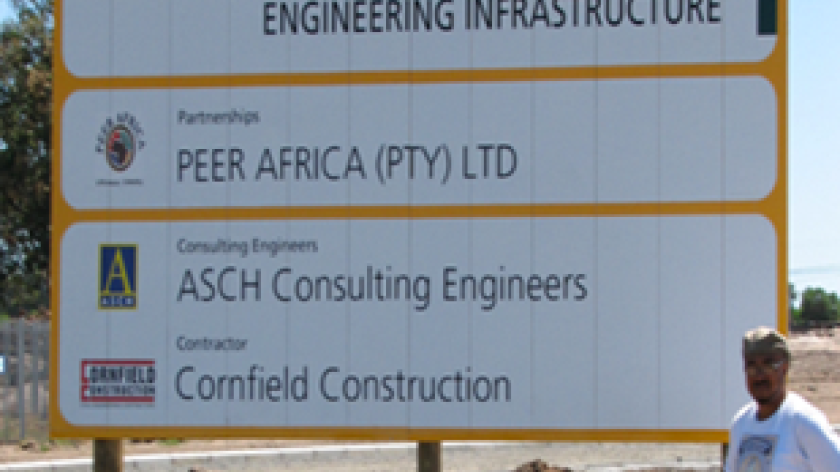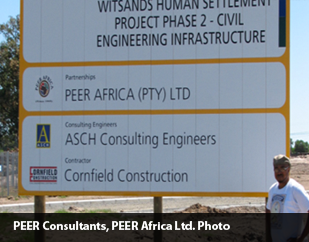

The Witsand project was one of the GEF/IFC Small-Medium Enterprise Programs that GEF launched with the International Finance Corp. (IFC) as an initial effort to raise private-sector engagement. Planned and implemented by the PEER Consultants and PEER Africa, Witsand Sustainable Human Settlement delivers low-cost housing in South Africa in furtherance of a national housing strategy set forth in the 1994 South African Reconstruction and Development Programs.
Phase 1 of the project entailed the construction of 452 homes; Phase 2, which was the subject of the award, added 500 homes. As part of the GEF’s broader agenda of linking environmental and economic benefits, the new Witsand homes include solar thermal water heating units as standard equipment along. Homes also come equipped with an affordable line of safe cookstoves, energy-efficient appliances, solar-powered devices such as radios and roof-top cell phone charging units, and fixtures that conserve water and power.
The Global Environment Facility hosted a workshop at its Washington, DC, headquarters on Friday, April 27, to discuss the implications and the future of the project. The workshop focused on reviewing the business case for in-country sustainable flagship programs that target the poor and on the prospects for special purpose funding vehicles for international scale-up and replication of the Witsand program. Dignitaries from the South African national government and the Cape Town government participated.
Dr. Robert K. Dixon, Team Leader of the GEF Climate and Chemicals Team, opened the workshop with a warm welcome and gave a presentation on the nexus between the GEF and Small and Medium Enterprises (SMEs). Recognizing GEF’s long history of working with the private sector, Dixon emphasized the roles and opportunities that can be taken by the private sector in furthering projects such as Witsand.
“One of the challenges that we face is the scaling up,” Dixon said. “We are great at implementing a project, but when it comes to replication, the private sector can definitely play its role.”
Dr. Lilia A. Abron, President of the PEER Consultants, and Mr. Mothusi Guy from PEER Africa, expressed their ambition to leverage the flagship program with other provincial level.
“We now know what works and what doesn’t,” said Guy. “With better understanding coming from experience, we look forward to having one of the start-up projects in Haiti.”
David E. Rodgers, GEF’s public private partnership program manager and senior energy specialist, spoke about future opportunities for SMEs seeking to collaborate with the GEF.
The SMEs can reach the GEF through its Public-Private Partnership (PPP) program or regular GEF projects. Soon they will be able to reach the GEF via the new Direct Access program.
“Location. Innovation. Mitigation. These words are what the GEF is looking for,” said Rodgers. “It has to have the right location. The project should target countries that are in need. Innovation, such as community engagement, empowerment is an important factor. We support projects that reduce greenhouse gas emissions. We simply do not support projects that build fossil fuel plants.”
The GEF realizes that the private sector engagement is not an end in itself but a means to generate additional global environment benefits.
As a financial mechanism, the GEF has been focusing increasingly on public-private sector engagement. The GEF and IFC established the Small and Medium Enterprise Program in 1999 to incorporate SMEs. In 2008, the Earth Fund was established by the GEF, with IFC as a strategic partner, to foster innovation, open new markets, and demonstrate the potential for private sector engagement to achieve greater scale of investment. Today, Public-Private Partnership is the new funding window. A revised strategy beyond the Earth Fund was approved by the GEF Council in November, 2011. GEF has created an independent funding allocation for the private sector of $80 million.